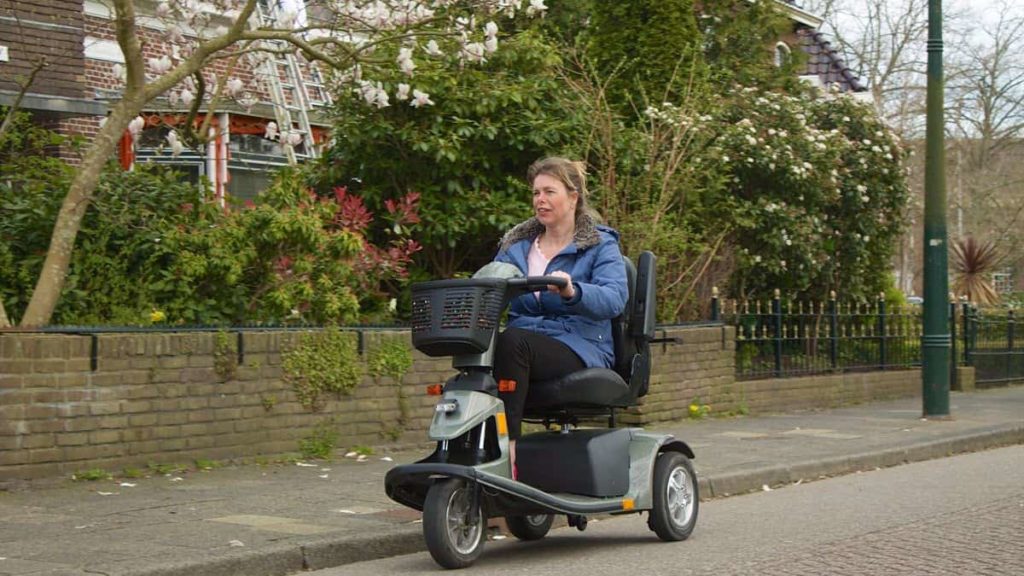Does Medicare Cover Electric Wheelchairs?
The answer may not be simple. Some may immediately say “yes”, but to qualify for an electric wheelchair is another story altogether.
If you’ll take a look at Medicare’s Wheelchair and Scooter Benefit, you’ll discover that there is a hierarchy of rules that ultimately determine if you qualify for an electric wheelchair. Let’s try to outline the rules.
The Process Starts With Your Treating Doctor
First, your doctor must provide a submission indicating that you require either a wheelchair or scooter. To qualify for either one of these, your doctor must indicate that you are unable to safely move around your home without one. It goes without saying that your doctor must indicate that you can actually operate one.
Only if you cannot use a manual wheelchair will you be considered for a mobility scooter. Of course, you must be able to get in and out of the scooter and be able to operate the controls.
Okay, so now you may have jumped through the first hoop. You still don’t have an answer to your original question about an electric wheelchair. What’s next?

Not surprisingly, if you are even to be considered for an electric wheelchair you have to show that you cannot use a mobility scooter. In other words, you cannot sit up and work the controls.
Now can I get my electric wheelchair? Nope. There’s still more.
Electric Wheelchairs Require Prior Authorization
Usually, Medicare has a requirement for prior authorization of electric wheelchairs. For this authorization, you’ll usually need to make the submission yourself but would have to get the documents from both your doctor and the supplier first. We’re not going to go over the list of which models require prior authorization except to say that it is pretty much all of them.
Next, even though you made the submission for authorization, Medicare will only inform the supplier and you’ll have to contact the supplier to find out the decision. You might not qualify for the electric wheelchair if Medicare decides you don’t medically need one.
It’s safe to say that both your doctor and your supplier have to be part of Medicare as well.
Medicare Doesn’t Cover the Entire Cost
Finally, you will have to pay 20% of the cost once you have paid your deductible. We’ll go over the cost a bit later but one thing’s for sure, it is NOT cheap.
Is an Electric Wheelchair Right for me?

Even though you may qualify for an electric wheelchair, there are a number of things you’ll need to consider. There are both advantages and disadvantages to using an electric wheelchair.
Advantages of Electric Wheelchairs
- Electric wheelchairs usually have six wheels allowing them to turn in a small radius. Many are operated with only a joystick making it very easy if you don’t have a lot of dexterity.
- To assist with comfort and back support, electric wheelchairs come with a number of seating variations. If you need to sit up higher or perhaps lean back, you can find a seating style that suits you.
- Electric wheelchairs come in many models. You can find lighter and narrower wheelchairs as well as models with different control types. There are definitely lots of choices to choose from.
Disadvantages of Electric Wheelchairs
- You need to know that electric wheelchairs are quite heavy so you certainly won’t be able to lift it yourself. They are also quite low to the ground so using one in the garden or any other places where there’s only a turf would be almost impossible.
- Now here’s a real disadvantage – electric wheelchairs do not collapse. That means you might find it difficult to fit in the car should the need to arise. You might have to get an adapted van if you tend to travel a lot. Even then, lifting it in and out of a van could be a real challenge.
- Finally, electric wheelchairs, if not covered by your insurance, can be quite expensive. They start at about $5,000 and go up to as much as $20,000.
- If you cannot operate a manual wheelchair or a mobility scooter, then an electric wheelchair may be your only option.
A Mobility Scooter may be a Better Option

If you can operate a mobility scooter (also known as powered scooter), you may want to consider one. Again, there are many advantages and disadvantages. If you do choose to purchase one, we have a guide to help you find the right mobility scooter for your needs and budget.
Advantages of Mobility Scooters
Powered scooters are much lighter in weight than an electric wheelchair. Moving the scooter around is not that difficult if you can manage it. Even taking it in or out of a car or van is certainly possible depending on the type of vehicle.
Scooters are mostly operated in an upright position. This is great if you can’t sit for long or have back issues. The controls are not as simple as electric wheelchairs but are easy enough to operate.
Your bank account won’t suffer as much with a mobility scooter since you can get a very nice scooter for an affordable price. You might also find many used scooters in the newspaper that may even be cheaper.
If you’re torn between an electric wheelchair or a mobility scooter, it might be a good idea to rent one first. This way, you can test it out first to see if you can operate one easily and can use it safely at home.
Even though Medicare has quite a number of qualifying factors, at the end of the day, they do consider your medical needs when it comes to electric wheelchairs. The ultimate goal is to offer you the mobility you need.
If you can’t use a manual wheelchair or a mobility scooter, then your ability to get around might actually require an electric wheelchair. Your ability to move around anywhere makes a tremendous difference in your quality of life. Nobody, including Medicare, can ever take that away from you.
Frequently Asked Questions
Will Medicare pay for a wheelchair lift?
Medicare does not cover the cost of wheelchair lifts, but there are Medicare Advantage Plans provided through insurance companies that may fund lifts and platforms.
Will Medicare pay for a wheelchair ramp?
Medicare will not cover the cost of a wheelchair ramp. Medicare funds what they call Durable Medical Equipment (DME) and a ramp do not fall under this category. Private insurance companies may offer a Medicare Advantage Plan which most likely will pay for wheelchair ramps.
Will Medicare pay to adapt my vehicle for a wheelchair?
Medicare funds what is medically necessary. Since an adapted vehicle does not fall under this category, it is not funded.
How often will Medicare pay for an electric wheelchair?
While the process is a bit complicated, Medicare will pay for a replacement electric wheelchair provided that the one to be replaced has been in constant use for at least five years.
Will Medicare pay for wheelchair batteries?
Provided that you have qualified for an electric wheelchair under Medicare, the cost of a wheelchair battery will also be covered by Medicare.
Jill believes that life just keeps getting better as she gets older. She believes everyone can live a full life of endless possibilities, with the right mindset, a healthy diet and with exercise.






